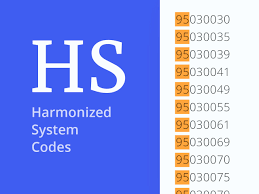The Harmonized System (HS Code)
As the diversification of goods has become increasingly complex over the years, and globalization has made its way into global supply chains, there arose a need to classify all these categories in a standardized way recognized by administrative bodies and businesses worldwide. The Harmonized System (HS Code) was designed to categorize all existing goods with detailed accuracy, making it easier to identify products internationally.
What is the HS Code?
The Harmonized System (HS Code) is a classification system created, developed, and maintained by the World Customs Organization (WCO). Every product is assigned a harmonized code, and this internationally recognized code is used in almost every country, most commonly by customs authorities to clear shipments.
Since customs and government agencies now have a common reference point through HS-based categories, they can establish consistent regulations for handling each class of goods. This, in turn, creates a more organized import/export structure and clear guidelines for countries looking to implement new regulations.
How to obtain the HS Code for a product?
Each HS Code consists of six digits:.
The first two digits define the chapter under which the product falls.
There are 21 chapters, each providing a general description of a category.
The next four digits further specify the heading and subheading within that chapter.
n the ASEAN region, the ASEAN Harmonized Tariff Nomenclature (AHTN) is followed. While the first six digits are still based on the international HS Codes, two additional digits are added at the end to further distinguish subheadings. Typically, goods shipped within ASEAN use the eight-digit AHTN classification, but the standard six-digit HS Codes remain valid as well.
Examples of HS Codes for Everyday Items

How to Use the HS Code?
Companies are encouraged to indicate the HS Code on their shipping documents to ensure a standardized method of clearance every time. The shipper is always responsible for providing the HS Code for use.
If you have spent time browsing through the portal… TradeNetYou will find that there are not only thousands of different HS Codes, but each product is divided into very specific descriptions.
In the example mentioned above, there is a category for men’s shirts made of cotton, another category for men’s shirts made of synthetic fibers, and yet another for men’s shirts made of other textiles—and the list goes on, with a total of about 10 different codes for the item “shirt.”
In some cases, certain goods may have overlapping codes, where two or more codes could apply. In such situations, the shipper only needs to choose one—usually the closest possible match to the actual item.
It was managed by… Customs In almost every country, different regulations have already been established based on various classifications. When you include the wrong code, there may be a risk of unintended duties and taxes, stricter import restrictions, or—in the worst-case scenario—denial of entry into the destination country.
While it is not strictly necessary to indicate the HS Code of your product on any of your documents, it is always recommended to include it on your invoice to provide a clear and accurate representation of your shipment’s contents—especially if the item you are shipping is technical in nature.
Let’s use the example of “TV parts” as a description on your invoice. Although the product description term is clear and straightforward, TV parts can be divided into different categories, and within each category, the technical aspects of the component can be further specified. To accurately identify the exact part you are shipping, the HS Code is required to clearly label the item.
What Does Bader International Shipping (BIS) Offer?
Bader International Shipping, a leading company in international shipping and customs clearance in Saudi Arabia, handles all types of air parcels and sea containers. Our global network processes these large volumes of shipments while ensuring smooth passage across international borders. Speed is a core focus of our operations, as it not only allows us to satisfy our clients but also paves the way for handling larger volumes of shipments with greater efficiency.
The challenge falls on our customs teams around the world. Beyond adopting best practices, our clearance agents must be well-versed in customs regulations and changes in HS Codes so that our network can continue operating efficiently without worrying about uncertainties from customs.
Whether you are importing or exporting, Bader International Shipping (BIS) Offer? provides a comprehensive service covering every detail so you don’t have to worry.
To contact our customer service team for any parcels that require assistance, you are welcome to reach out to us. .


HS CODE